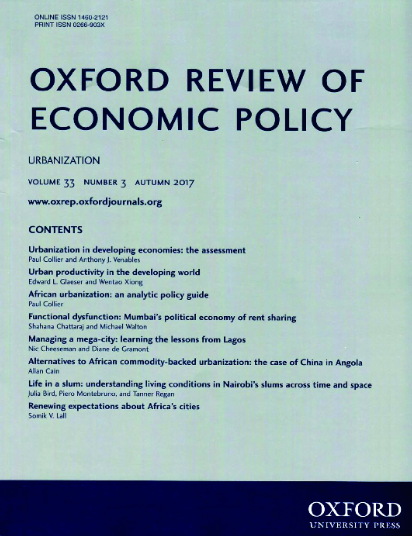欧盟碳边界调整的政治经济学
IF 1.8
2区 经济学
Q2 ECONOMICS
引用次数: 2
摘要
欧盟委员会提出了一个碳边界调整机制(CBAM),以实现欧盟成员国雄心勃勃的气候政策,并激励其他国家的减排。本文采用动态、多层次、多中心的视角来讨论国内外利益集团将如何受到该政策的影响。我们的分析得出了三个核心见解。首先,外交努力应集中在少数受《建立信任措施》影响最严重的国家。其次,CBAM应作为开放气候联盟中国内缓解努力的推动者来实施,而不是试图将欧盟气候政策扩展到其他国家。第三,逐步实施CBAM,同时逐步取消欧盟生产商的免费排放许可证,并支持第三国碳密集型行业的转型,可以缓解国内外行业的政治反对。本文章由计算机程序翻译,如有差异,请以英文原文为准。
The political economy of carbon border adjustment in the EU
The European Commission has proposed a Carbon Border Adjustment Mechanism (CBAM) to enable ambitious climate policies in EU member states and to incentivize emission reductions in other countries. This paper adopts a dynamic, multilevel, polycentric perspective to discuss how domestic as well as foreign interest groups would be affected by the policy. Our analysis yields three central insights. First, diplomatic efforts should be focused on a small number of countries that would be most severely affected by the CBAM. Second, the CBAM should be implemented as an enabler of domestic mitigation efforts in an open climate alliance instead of an attempt to extend EU climate policy to other countries. Third, gradually phasing in the CBAM while phasing out free emission permits for EU producers and supporting the transformation of carbon-intensive sectors in third countries can ease political opposition from domestic as well as foreign industries.
求助全文
通过发布文献求助,成功后即可免费获取论文全文。
去求助
来源期刊

Oxford Review of Economic Policy
ECONOMICS-
CiteScore
12.50
自引率
1.50%
发文量
41
期刊介绍:
The Oxford Review of Economic Policy is a refereed journal which is published quarterly. Each issue concentrates on a current theme in economic policy, with a balance between macro- and microeconomics, and comprises an assessment and a number of articles. It gives a valuable appraisal of economic policies worldwide. While the analysis is challenging and at the forefront of current thinking, articles are presented in non-technical language to make them readily accessible to all readers. The Oxford Review is aimed at a wide audience including government, business and policy-makers, as well as academics and students. It is required reading for those who need to know where research is leading.
 求助内容:
求助内容: 应助结果提醒方式:
应助结果提醒方式:


